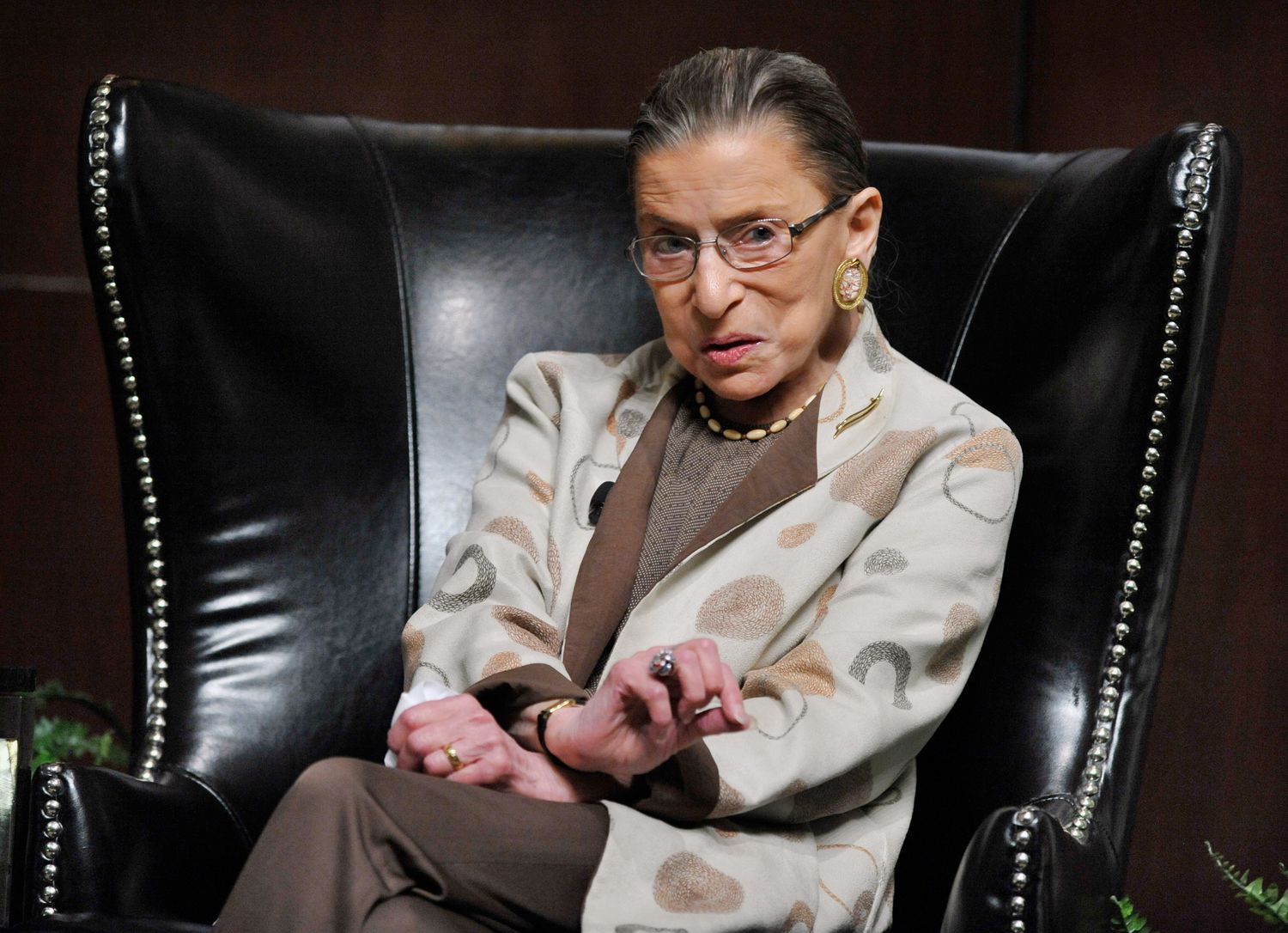The new documentary on Ruth Bader Ginsburg, RBG, is a must-see. As The Economist piece, “How Ruth Bader Ginsburg became a trailblazer for gender equality” summarizes, this film gives us a real feel for how “Ms. Ginsburg built America’s gender equality standards brick by brick,” and “the quieter parts of this remarkable justice’s life.”
Love and the Law
I love how the film shows RBG’s “loving, decades-long relationship with Marty Ginsburg, a talented lawyer who died in 2010, and the equality and mutuality of their marriage, went hand-in-hand with her mission to earn women a measure of respect and autonomy in America.” And I admire that while many women were protesting in the streets during the women’s movement, RBG began using her legal skills to fight for equal treatment under the law, and has continued to do so for years.
Her hard work to fight for equal treatment of men and women in the workplace in particular got me thinking. What if a case came before her that involved unequal treatment in the workplace based on reproductive choice – of those with and without children?
Equal Treatment in the Workplace
We all know about how workplace culture can favor parents. Those with children can get more flex time, and those without can face strong expectation to “pick up the slack” for parents. How would a case go, say, if the plaintiffs claimed they lost their jobs because they declined to do so?
Or take leave policies. All too often they strongly favor parents. While PTO (“personal time off”) policies are becoming more common, we have a ways to go before it’s the norm that parental time off is treated equally with other reasons to take personal time. I wonder how a case would go if a class of employees claimed unequal treatment regarding leave policies. For example, if they had asked for leave policies to be made equitable and the company(ies) continued to refuse to do so. What would it take to make the legal argument that when reproductive choice drives workplace policy it results in unequal treatment of employees’ personal time off?
I want to believe that RBG would agree that in addition to gender and race, equal treatment should also pertain to choices we make in our personal lives. I know lots women who are not mothers who have been very frustrated with parent-centric leave policies, and want to do something about it, but don’t. What would it take for them to get the courage to do so? If many women who are not mothers galvanized for this purpose, what would it look like? If it went to court, how far could it go? This I wonder.
Next Wave of the Equality Movement
To take on something like this would be extraordinary. It would be a tangible attempt to push pronatalism out of the workplace. You could also see it as reflecting the next wave of the women’s equality movement, one that puts reproductive choice on a level playing field in workplace policy.
This also means women with children should not be treated any differently than those who don’t have them. Take employee pay. While it’s well documented that often women still get paid less for doing the same job as men, we also see studies that tell us that women who become mothers end up being paid less than women employees who are not mothers. This reflects unequal treatment as well.
RBG, we are indebted to you for all of your great work on equality in the eyes of the law. May you continue to inspire many women (and men) in this regard. And may your intellect, bravery, gumption, and commitment to justice move generations after you to forge toward a final frontier of equal treatment – one that takes on reproductive status.


Just had to post this article link, as it is in the same vein… https://www.irishtimes.com/life-and-style/people/the-childless-aren-t-here-to-compensate-for-those-who-have-kids-1.3498965